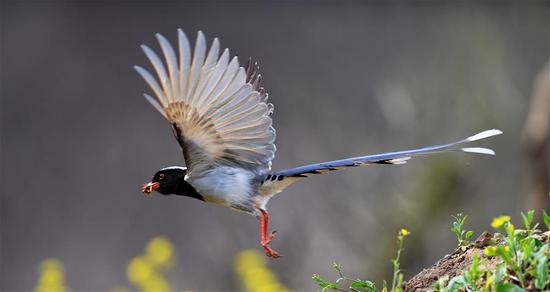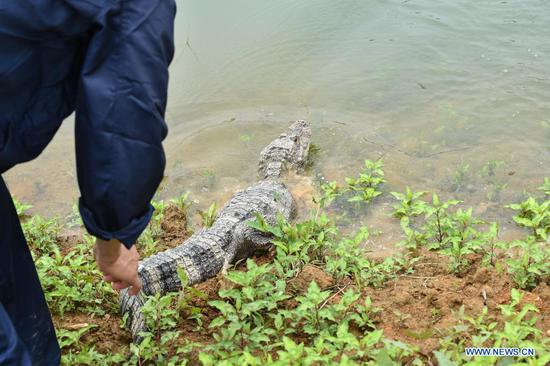
A red-billed blue magpie is seen at Zhaocun Township of Lushan County, central China's Henan Province, March 26, 2018. (Xinhua/Mei Yongcun)
A new study from Australian researchers found about 50 billion birds in the world by using modelling and information from experts to calculate what they believe is an accurate estimate.
Ecological scientists from the University of New South Wales (UNSW) published their findings this week in the Proceedings of the National Academy of Sciences.
The study analyzed 9,700 bird species using data collected online by 600,000 birdwatchers between 2010 and 2019.
They found only four species belong to "the billion club" -- the house sparrow (1.6 billion), the European starling (1.3 billion), ring-billed gull (1.2 billion), and barn swallow (1.1 billion).
The study also found many iconic Australian birds number in the millions including the rainbow lorikeet (19 million), sulphur-crested cockatoo (10 million) and kookaburra (3.4 million).
Some Australian species are rare including the black-breasted buttonquail, which is down to about 100.
The researchers noted that such low figures could be an alarm call for the health of the ecosystem and hope this study could lead to more conservation actions.
"While this study focuses on birds, our large-scale data integration approach could act as a blueprint for calculating species-specific abundances for other groups of animals," said lead author Dr. Corey Callaghan.
"Quantifying the abundance of a species is a crucial first step in conservation. By properly counting what's out there, we learn what species might be vulnerable and can track how these patterns change over time," he said.
"We will need to repeat and refine this effort to really keep tabs on biodiversity, especially as human-caused changes to the world continue and intensify."
The research team also planed to repeat their analysis as more data becomes available.


















































